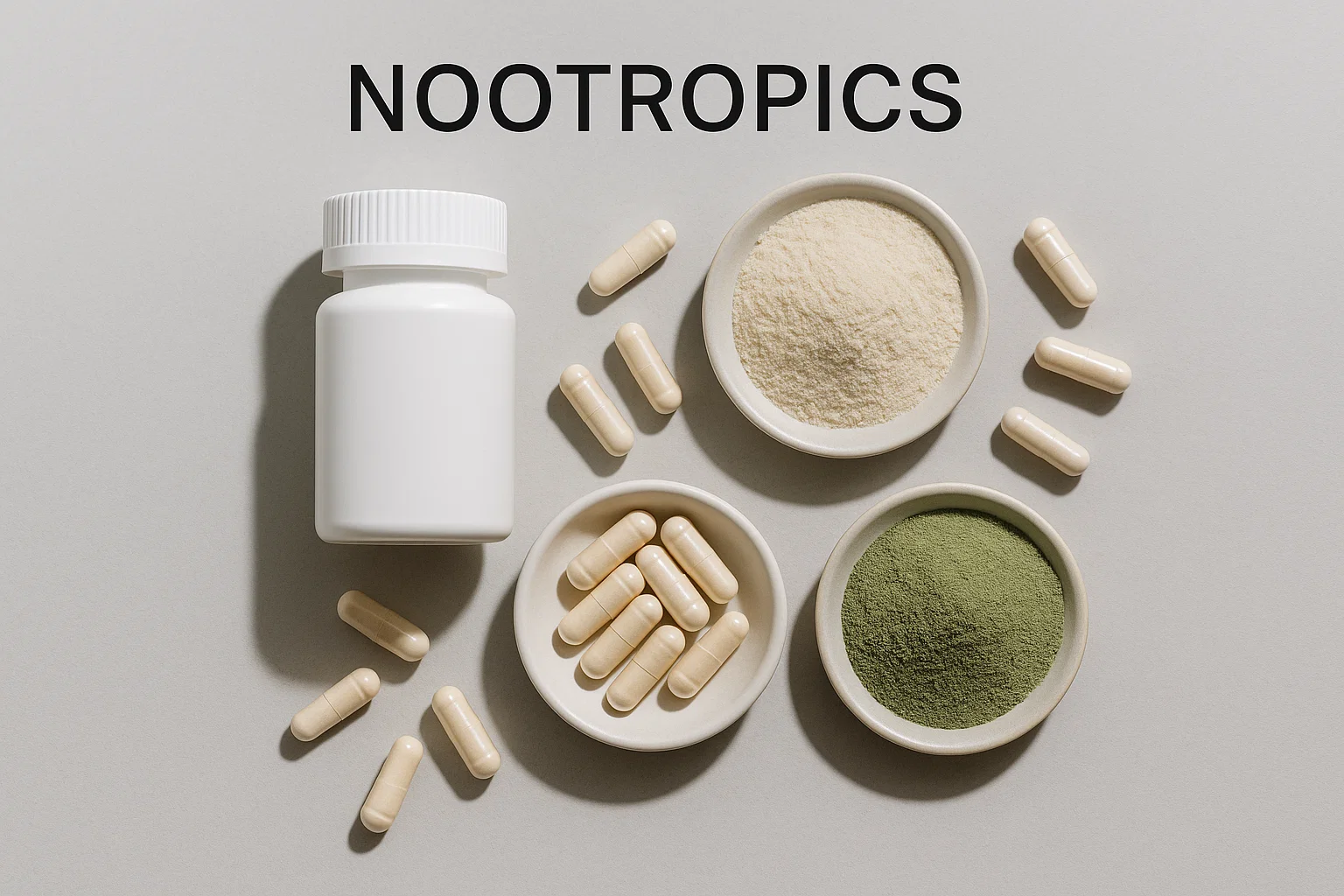Most “focus” supplements are garbage. This list cuts through the hype and only includes ones backed by real results. No fluff, no placebo.
#1 – Caffeine + L-Theanine
What It Is
Caffeine is a stimulant found in coffee, tea, and energy drinks. L-Theanine is an amino acid from green tea known for its calming effects. When taken together, they create a powerful synergy.
How It Works
Caffeine blocks adenosine receptors, reducing fatigue and increasing alertness. L-Theanine increases alpha brain waves, promoting a state of relaxed focus. The result? Smooth, dialed-in energy without the crash or anxiety.
How to Take It
The ideal ratio is 2:1 L-Theanine to caffeine — typically 200mg L-Theanine with 100mg caffeine. This can come from a supplement stack or by pairing green tea extract with coffee.
Watchouts
Too much caffeine can still lead to tolerance, jitters, or poor sleep. Use it early in the day and avoid combining with other stimulants. If you’re sensitive, start low and track your response.
#2 – Citicoline (CDP-Choline)
What It Is
Citicoline, also known as CDP-Choline, is a precursor to the neurotransmitter acetylcholine. It plays a critical role in memory, attention, and brain cell repair. Unlike standard choline sources, it crosses the blood-brain barrier efficiently.
How It Works
Citicoline increases levels of acetylcholine, a key neurotransmitter for learning and memory. It also supports phospholipid synthesis, helping to repair cell membranes and enhance signal transmission in the brain.
How To Take It
The effective dose ranges from 250mg to 500mg daily. It’s usually taken once in the morning. Some users stack it with caffeine or other nootropics for enhanced focus.
Watchouts
Citicoline is well-tolerated, but in rare cases may cause headaches or insomnia at high doses. Start low, especially if stacking with other choline sources or stimulants.
#3 – Rhodiola Rosea
What It Is
Rhodiola Rosea is an adaptogenic herb used traditionally in Russian and Scandinavian medicine. It’s known for helping the body handle stress, fight fatigue, and stay mentally sharp under pressure.
How It Works
Rhodiola helps regulate cortisol levels and supports neurotransmitters like serotonin, dopamine, and norepinephrine. It promotes mental endurance and focus, especially during times of stress, fatigue, or sleep deprivation.
How To Take It
Standard dosage ranges from 200mg to 400mg daily. Look for a standardized extract with at least 3% rosavins and 1% salidroside. Take it in the morning, especially if combining with other energizing supplements.
Watchouts
Rhodiola may cause overstimulation if taken in high doses, especially when mixed with caffeine or other adaptogens. Start at the low end of the dose range and avoid late-day use to prevent sleep issues.
#4 – Lion’s Mane Mushroom
What It Is
Lion’s Mane is a natural mushroom known for its ability to support brain health. Used in traditional Chinese medicine, it’s now gaining attention for its potential to stimulate nerve growth and improve cognitive function.
How It Works
Lion’s Mane stimulates the production of Nerve Growth Factor (NGF), a protein that supports the growth, repair, and protection of brain cells. This may lead to sharper memory, better focus, and long-term neuroprotection.
How To Take It
Typical dosage ranges from 500mg to 1000mg daily of a 10:1 extract. Look for products that clearly state the beta-glucan content. For general cognitive support, take once in the morning with food.
Watchouts
Lion’s Mane is generally safe, but some users report mild digestive issues or allergic reactions. If you’re sensitive to mushrooms, start with a small dose and monitor how you respond.
#5 – Magnesium L-Threonate
What It Is
Magnesium L-Threonate is a specialized form of magnesium developed for brain bioavailability. Unlike other forms, it crosses the blood-brain barrier efficiently, making it a top choice for cognitive health.
How It Works
This form of magnesium raises brain magnesium levels more effectively than others. Adequate magnesium in the brain supports synaptic plasticity — key for learning, memory, and focus.
How To Take It
A standard dose is 1,000mg to 2,000mg daily, often split into two servings. Best taken with meals. Note that this form contains less elemental magnesium, but its brain impact is superior.
Watchouts
While well-tolerated, some users report headaches or drowsiness. If stacking with other magnesium forms, be cautious of total intake. Always confirm actual elemental magnesium on the label.
These supplements aren’t hype — they’re backed by real science and actual results. Whether you’re studying, grinding through work, or just tired of brain fog, the right stack makes a difference. Skip the gimmicks. Stick to what works.
